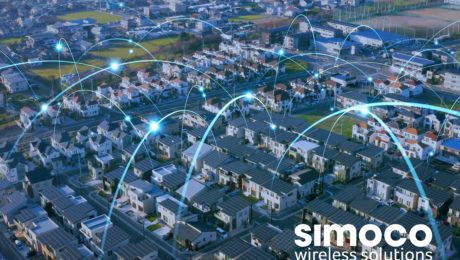Black Start and SRAS the Future of Resilient Utilities
In today’s interconnected world, the reliability and resilience of power systems are crucial. Black Start and System Restart Ancillary Services (SRAS) play a vital role in restoring power after a widespread outage. At Simoco Wireless Solutions, we understand the importance of these processes and the potential of modern technologies like edge computing and advanced radio communications to enhance their effectiveness. (more…)
- Published in Utilities
Navigating the Future with Edge Computing
In the ever-evolving sphere of technology, a ground-breaking innovation that has recently captured significant attention is edge computing. The influence of edge computing continues to swell, with businesses and industries recognising its potential to transform the way data is processed and analysed. This blog takes a deep dive into the latest trends in edge computing that are continuing to reshape the technological landscape in 2024.
(more…)
- Published in LTE
How 5G is changing the business landscape
5G technology is ushering in a new era of connectivity, bringing with it transformative changes across all industries. As the fifth generation of mobile networks, 5G goes beyond faster internet speeds for smartphones, it has the potential to reshape the entire business landscape. In this blog, we will explore how 5G is changing the way businesses operate and the opportunities it presents for innovation and growth. (more…)
- Published in Internet of Things
How IoT enabled technology provides housing associations the tools before major issues arise
There are over 1500 not-for-profit housing associations across the United Kingdom, with 2 million homes lived in by over 5 million people. The sheer amount can often leave long delays for property repairs and upkeep, with many slipping through the cracks, leaving housing associations with significant repair bills. When a property hasn’t been maintained or severely neglected it can cause further problems such as mould and dampness. In some instances, faulty or broken equipment such as a fire alarm or carbon dioxide alarm can be dangerous and against the law with possible penalties. (more…)
- Published in Internet of Things
Industrial IoT 4.0
While the number of smart and connected devices continues to grow at an expeditious rate, IoT is no longer just about monitoring equipment performance. Increasingly, the value of IoT comes from collecting machine data to distinguish efficiencies that can be made for improvement. In today’s unprecedented global economy, routine visits to check a machine’s status or service can be an unrealistic and costly exercise. Remote monitoring of Industrial IoT devices offers several benefits to manufacturers of all sizes. Connected IoT devices make operational and performance data about machines fully accessible anywhere and at any time. Autonomous manufacturing with IoT allows key decisions on changes in strategy to be made instantaneously to match the data.
- Published in Internet of Things
Why are smart buildings important?
What are smart buildings?
Smart technology might appear to be a fairly new term for most people, but it can be traced back to 1966 when the very first home automation platform was invented by Jim Sutherland and named Echo lV. The device was capable of storing recipes, relaying messages, turning appliances on and off and controlling the temperature of the building. (more…)
- Published in Internet of Things
What the 5G future could mean for utility providers
Earlier this week, Chancellor of the Exchequer Philip Hammond announced that the UK government will invest more than £1bn in digital infrastructure, in order to support trials for 5G mobile technology.
The current ambition of the government is for the UK to be a world leader in 5G. The next generation of mobile technology will become commonplace across the UK within the next few years, but what is 5G, and what does this revolution mean for the communications industry?
- Published in LTE






